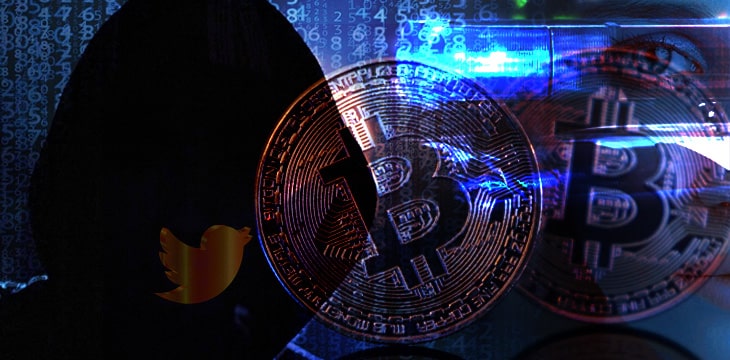|
Getting your Trinity Audio player ready...
|
The post originally appeared on the Unbounded Capital website and we republished with permission from its author, Jack Laskey.
The recent Twitter hack used Bitcoin as a means of defrauding innocent victims of their property. In the future, I think this will be perceived to be extremely strange. Why? Because Bitcoin is the least crime-friendly form of money. However, today’s law enforcement lacks either the awareness or desire to defang an attack like we saw last Wednesday. In fact, many believe that reuniting these victims with their BTC is not possible without the apprehension and cooperation of the hackers. Hopefully the high profile nature of this illegal act will expedite law enforcement’s realization that they can stop these types of crimes in their tracks due to the unique properties of Bitcoin.
Why is Bitcoin so unfriendly to crime? The answer is integrally tied to the way Bitcoin functions, by using a blockchain. The Bitcoin blockchain is a complete record of all transactions ever made with Bitcoin, a complete digital paper trail. This necessarily includes the transactions from the hack. If the stolen Bitcoins aren’t recorded on the blockchain, then the criminals don’t have the Bitcoin. In other words, stealing Bitcoin is not possible without leaving evidence that anyone can see, including law enforcement.
So how could law enforcement recover stolen Bitcoin for victims? The stewards of the Bitcoin blockchain are the Bitcoin miners. They are responsible for determining which new Bitcoin transactions are valid and which are not. Typically, they base this on the rules of the system without needing to consider laws, but since laws are a superseding ruleset, Bitcoin miners will ultimately have to follow them. Technically, the task is simple. Instead of recognizing transactions from the thief as valid, Bitcoin miners simply have to recognize those transactions as invalid and recognize transactions from the original holders as valid. While this is simple, it is unprecedented.
The reason that Bitcoin miners have not been compelled to follow laws may be due to the perception that Bitcoin can operate outside of the law. Bitcoin is widely believed to be “unstoppable” due to its decentralization. For this reason, many think that law enforcement is unable to influence a set of actors that is spread around the world. This narrative is incorrect on both sides; law enforcement can apprehend decentralized networks and Bitcoin is not very decentralized at all.
A good example of governments around the world coordinating to shut down a decentralized network is Liberty Reserve. Liberty Reserve was a virtual currency that predated Bitcoin which was facilitated by a global decentralized network of token exchangers. Because the network focused heavily on providing its users with anonymity, Liberty Reserve was popular amongst criminals seeking to evade law enforcement. At its peak, Liberty Reserve had over 5 million users around the world and processed over $16 Billion USD worth of value. Despite its temporary usefulness to criminals seeking to bypass law, the U.S. Federal Executive and Judiciary branches ultimately coordinated with dozens of countries to shut it down and seized all the web domains and assets of Liberty Reserve’s key operators.
Even if decentralization could be a defense against law enforcement in theory, in practice Bitcoin is far less decentralized than Liberty Reserve and is therefore not likely decentralized enough to evade law enforcement. Bitcoin mining, like most businesses, has economies of scale. This means that the miners who constitute a controlling majority of the Bitcoin network are operating out of large data centers known to local governments. If those governments issue orders to reassign Bitcoin, miners will have to comply or stop mining. If they do not, then they can have their equipment seized and face fines or jail time. In all likelihood, they will comply.
While the narrative that Bitcoin is unstoppable is widely propagated, in truth, many Bitcoin experts understand that it can be subjected to law enforcement. For that reason, certain versions of Bitcoin have made attempts to change the rules of the system to promote a loss of records and make the proceeds of crime more spendable. In particular, BTC, the most popular version of Bitcoin, and BCH (Bitcoin Cash) have attempted to add features which obscure the records of ownership. These include the Lightning network on BTC and Schnorr signatures and coin mixing on BCH. Governmental organizations including the IRS have recently stated their intention to investigate these new features and other anonymizing technologies. Further, the financial action task force and directives such as AMLD5 signal international governments’ desire to stamp down on money laundering features of cryptocurrencies. There is a version of Bitcoin, Bitcoin Satoshi Vision (BSV), which seeks to return to the original, crime prohibiting protocol. At Unbounded Capital, we believe that the ability to dissuade criminal activity will be key to Bitcoin in the form of BSV’s success.
Given the ability of law enforcement to reunite these Twitter hack victims and many other targets of Bitcoin theft with their funds, it is a shame that they are unaware of their abilities. Bitcoin is the money of honesty. If law enforcement will act, then Bitcoin crime can truly end.

 02-18-2026
02-18-2026 




